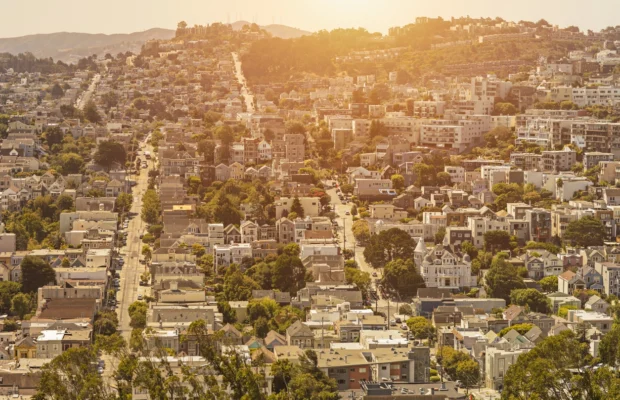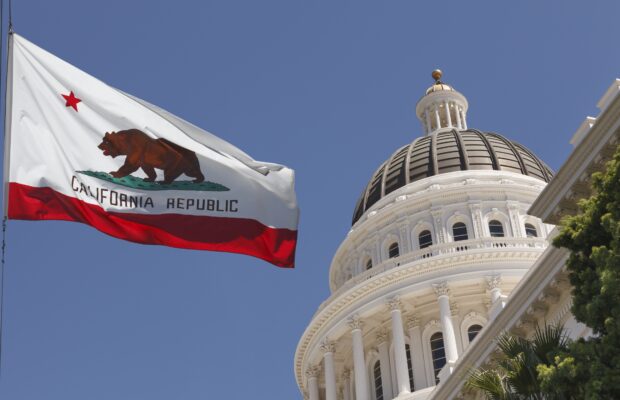San Francisco voters will again confront a formidable ballot on November 3, 2020, with 13 San Francisco propositions to consider in addition to state and federal offices and measures. The local propositions address an array of topics, including governance, affordable housing, taxes, and permits. Some of the key measures impacting San Francisco businesses are summarized below. Except where indicated, the measures require a simple majority vote to pass.
Proposition A (Health, Parks and Streets Bond): Proposition A would authorize issuance of general obligation bonds of up to $487.5 million for capital projects across three primary categories: mental health, substance abuse, and homelessness; parks, open space, and recreation facilities; and street maintenance and repair. The projects funded by Proposition A are recommended in the City’s 10-year capital plan and are generally viewed as supporting employment and economic recovery in the wake of the COVID-19 public health crisis. The Citizens’ General Obligation Bond Oversight Committee would review how bond funds are spent. According to the San Francisco Controller’s Office report, Proposition A is not anticipated to raise taxes and is consistent with the City’s current non-binding debt management policy to keep the property tax rate for City general obligation bonds below the 2006 rate by issuing new bonds as older ones are retired and the tax base grows. The measure was proposed by Mayor Breed and placed on the ballot by a unanimous vote of the Board of Supervisors. Proposition A is supported by various community groups, the San Francisco Democratic Party, and local and state officials. Opponents include the Libertarian Party of San Francisco and the San Francisco Taxpayers Association. As a bond measure, Proposition A requires a two-thirds majority to pass.
Proposition B (Department of Public Works): This Charter Amendment would make substantial changes to the Department of Public Works (DPW) at a time when complaints about the condition of San Francisco streets are widespread. It would create a new Public Works Commission to oversee the Department and a new Department of Sanitation and Streets to perform a number of functions currently within the jurisdiction of DPW. Functions to be transferred to the Department of Sanitation and Streets include street cleaning and maintenance and street tree maintenance. The new Department of Sanitation and Streets would also be overseen by a new Commission. According to the San Francisco Controller’s Office report, Proposition B would cost between $2.5 million and $6 million annually beginning in 2022 and would shift approximately half of DPW’s employees to the new Department of Sanitation and Streets. The Charter Amendment was submitted to the voters by the Board of Supervisors by a vote of 7-4. Proposition B’s supporters include the San Francisco Labor Council, the San Francisco Democratic Party, and various local public officials. Opponents include the San Francisco Taxpayers Association and the San Francisco Republican Party.
Proposition F (Business Tax Overhaul): Proposition F would amend the San Francisco Charter and City Ordinances in significant ways. These include eliminating the payroll expense tax, ultimately increasing the Gross Receipts Tax rates, and increasing the number of small businesses that are exempt from the Gross Receipts Tax. Overall rates for some businesses would increase, with the new rates phased in over a 3-year period effective in 2021. There would also be temporary tax decreases for certain industries that have been heavily impacted by economic impacts from COVID-19. The measure allows one-time spending of a projected $1.5 billion from two dedicated taxes (homelessness, child care) that are currently being assessed and impounded pending the resolution of litigation. It also authorizes two contingent taxes that would be imposed if the two dedicated taxes are invalidated by the courts. The San Francisco Controller’s Office projects that Proposition F would result in approximately $97 million in annual net new revenue to the General Fund and $1.5 billion in one-time revenues from the impounded dedicated taxes. Proposition F was placed on the ballot by a unanimous Board of Supervisors vote. It is supported by the San Francisco Democratic Party and various groups representing small businesses, child care and other non-profit organizations, and unions representing nurses, firefighters, health care and other workers. Its opponents include the San Francisco Chamber of Commerce, various pro-business groups, and the Libertarian Party of San Francisco.
Proposition H (Save Our Small Businesses Initiative): This Initiative Ordinance, submitted to the voters by Mayor Breed, would make numerous changes to the San Francisco codes governing storefront commercial uses and small businesses. It would, among other things, streamline and expedite the City permitting process for principally permitted storefront uses in the City’s Neighborhood Commercial zoning districts, allow eating and drinking uses in those districts to offer workspaces, and remove certain neighborhood notice requirements for new principally permitted businesses. It would also make changes to facilitate the use of outdoor spaces by eating and drinking establishments and other businesses. In addition, the conditional use requirement for certain commercial uses would be eliminated. According to the San Francisco Controller’s Office report, Proposition H would minimally to moderately increase City costs. Proposition H is supported by various small business associations, the San Francisco Democratic Party, the San Francisco Republican Party, and the Libertarian Party of San Francisco. Although limited formal opposition was submitted to the Department of Elections, groups including the San Francisco Tenants Union, the San Francisco Green Party, and other progressive voters’ organizations oppose Proposition H.
Proposition I (Real Estate Transfer Tax): Proposition I, an Initiative Ordinance submitted to the voters by five members of the Board of Supervisors, would increase the real property transfer tax on transfers of property valued between $10 million and less than $25 million from 2.75 percent to 5.5 percent, and the rate on transfers valued at $25 million or more from 3 percent to 6 percent. The San Francisco Controller’s Office estimates that Proposition I could result in an increase in annual net revenue of approximately $196 million, but also notes that the nature of real estate transactions and associated tax revenue is highly volatile and could result in tax avoidance strategies. Proposition I is supported by the San Francisco Democratic Party and various tenants’ rights and pro-housing organizations. It is opposed by the San Francisco Chamber of Commerce and various building owner and real estate organizations.
Proposition J (Parcel Tax for San Francisco Unified School District): This Initiative Ordinance, submitted to the voters by Mayor Breed, would impose an annual tax of $288 on each parcel in the City to generate $50 million in annual revenue to support the San Francisco Unified School District for salaries and educational improvements. The School District has faced the threat of budget cuts and layoffs in recent years, and Proposition J aims to address these budget shortfalls. If adopted, Proposition J would replace a very similar parcel tax approved by 61 percent of the voters in 2018. This existing parcel tax—which, at $320 per parcel annually, is higher than the $288 tax proposed under Proposition J—is currently on hold pending litigation asserting that the 2018 ballot measure required a two-thirds majority vote to pass. Proposition J would provide a workaround to these legal challenges by repealing the 2018 parcel tax and imposing a new parcel tax that is subject to two-thirds majority voter approval. Proposition J offers an exemption to the tax for property owners over the age of 65 in owner-occupied units. Proposition J is supported by various teacher and parent organizations, the San Francisco Labor Council, and the San Francisco Democratic Party. It is opposed by the San Francisco Taxpayers Association.
Proposition K (Affordable Rental Units): This Initiative Ordinance, submitted to the voters by a unanimous Board of Supervisors vote, would authorize the City of San Francisco to own, develop, construct, acquire, or rehabilitate up to 10,000 affordable rental units, fulfilling the requirement of the California Constitution that the City seek voter approval for public low-income rental housing. Article 34 of the California Constitution—which arose from public sentiment against public housing when it passed by voter referendum in 1950, now widely recognized as motivated by racism—requires majority voter approval before any city or other political subdivision of the state may construct, develop, or acquire “low-rent housing projects” using public funds. (Article 34 places no restrictions upon the development of affordable housing by non-governmental entities.) Proposition K would not designate funding or implement a plan for City-led affordable housing development, but voter approval would be the first step toward such development if a plan is created and funded in the future. Proposition K is supported by the San Francisco Democratic Party, various state and local officials, and various tenants’ rights and housing organizations. It is opposed by the Libertarian Party of San Francisco.
Proposition L (Business Tax Based on Executive to Employee Pay Comparison): Proposition L, submitted to the voters by a unanimous Board of Supervisors vote, would create an additional tax on San Francisco businesses whose highest-paid managerial employee has a salary exceeding the business’s median employee compensation by a ratio of 100 or more to 1. The increased tax would vary between those larger businesses subject to the Administrative Office Tax, and smaller businesses subject to the Gross Receipts Tax, with larger businesses paying an additional tax between 0.4 percent to 2.4 percent of their San Francisco payroll expense, and smaller businesses paying an additional tax between 0.1 percent to 0.6 percent of their San Francisco gross receipts. The San Francisco Controller’s Office estimates that the tax would result in between $60 million and $140 million in additional annual revenue, but notes that these estimates could vary based on changing economic conditions, fluctuations in executive compensation, and relocation risk associated with the tax increases. Proposition L’s supporters include the San Francisco Democratic Party, the San Francisco Labor Council, and various state and local officials. Its opponents include the San Francisco Taxpayers Association.
Measure RR (Caltrain Tax): This measure would authorize a 0.125 percent sales tax increase in San Francisco, San Mateo, and Santa Clara counties to provide $100 million of annual funding for the Caltrain rail system. Caltrain has historically received 70 percent of its funding from rider fares; however, with ridership down as much as 95 percent due to the COVID-19 pandemic, there is some uncertainty around Caltrain’s future financial stability. This funding would cover operational costs to allow Caltrain service to continue through the pandemic while fare revenue remains low, while also providing longer-term financial support for Caltrain to electrify its trains, offer affordable fare options for low-income riders, and expand train service in accordance with its 2040 Strategic Plan. Before a compromise was reached between the various agencies over the summer, the sales tax measure was nearly scuttled by political disputes over Caltrain’s governance; now, possible changes to the governance structure will be considered separately from the tax increase, and not through an electoral vote. Measure RR is supported by various pro-transit organizations and various government officials. It is opposed by the Silicon Valley Taxpayers Association. As a local tax measure, Measure RR requires a two-thirds majority to pass, calculated collectively across the three counties.


